Educational Psychologists
״We seamlessly process objects, words, shapes, colors, movement and faces simultaneously within milliseconds with the mechanism rarely, if at all, flickering into our consciousness. Perhaps because of the apparent ease with which we are able to see, we live with the illusion that seeing is easy.״
Cooper, S. A. (2012). Higher visual function: hats, wives and disconnections. Practical neurology, 12(6), 349-357.
What they’re saying
Are you talking about the critical role of vision in human behavior and performance at your psychology meetings?
Why isn’t 20/20 Eyesight Enough?
What if I told you that there’s a crucial factor often overlooked in the world of psychology, something so fundamental that it shapes our ability to learn, interact, and achieve our life goals? Let’s talk about vision.
Your client went for an eye examination and was told that they have 20/20 eyesight. What does that mean? It means that they can see small details from far away. But think for a moment. When you read, you need to point both your eyes with great precision at the same place on the page (eye teaming) and you need to keep the image clear (eye focusing). You also need to be able to transfer your gaze accurately from word to word, and line to line (eye-tracking). The information is imaged on the back of the eye (the retina) and is then sent to the brain to be interpreted (visual processing). When our brain finally makes sense of all that information, we “see” it. Yes! We see with our brain but gather the information with our eyes. Seeing is something we do. And we do much more with our visual system than just see small from far. Just read some examples of how life-changing improving these skills can be here.
20/20 Eyesight Vs Good Vision
When you hear that someone has 20/20 eyesight, it’s easy to assume they possess flawless vision. However, the reality is far more intricate. Good vision goes beyond merely seeing the world clearly; it empowers individuals to navigate life effortlessly.
Consider this scenario: You’re in a classroom, observing a student. They’re diligently copying notes from the board. To do this effectively, they need more than just 20/20 eyesight. While clear eyesight enables them to see the letters on the board, good vision takes it a step further. It equips them to sustain their visual attention, effortlessly remember what they’ve seen, and comprehend the material.
In the realm of spelling, for instance, it’s not enough to recall what words sound like. The ability to visualize words—remembering how they appear—is equally crucial. Good vision ensures that every facet of a word, from its shape to its structure, is effortlessly processed.
But the significance of good vision doesn’t end there. It extends into profound areas of human cognition and aspiration. Think about visualization—the skill that allows us to paint mental images and foresee our goals. This skill isn’t exclusive to daydreaming; it’s a cornerstone of ambition. When we have the ability to see our aspirations clearly, it becomes markedly easier to embark on the journey to achieve them.
A 2016 study published Optometry and Vision Science (1) found that children with vision problems are 200% more likely to be diagnosed with ADHD.
Researchers looked at 75,000 students and found that 15.6% of those with vision problems had also been diagnosed with ADHD. In contrast, only 8.3% of students without vision problems had been diagnosed with ADHD.
The symptom profile of ADHD and some problems of visual efficiency, principally convergence insufficiency, are almost identical. For a list of signs and symptoms, refer to our Vision Therapy Page.
Following are some vision problems that a student might experience every time they read and not know that they are unusual.
When Issues of Visual Efficiency Interfere with reading
Eye focusing – Blurred vision or ability to shift focus between objects between near and far distances may be compromised.

Eye teaming - Your eyes may not work together properly as a team even to the point of experiencing double vision.

Eye movements – You may experience difficulty with eye movements when reading or trying to follow a moving object (like a ball being thrown). Losing your place while reading is a common complaint.

Animated images courtesy of Nielsen Vision Development Center (Selma, TX)
Listen to Eitan describe the changes he has experienced following 20 weeks of Optometric Vision Therapy
We’re never reading the words on the page. We’re only ever reading the words that show up in our consciousness.
Robert Lederman
Let’s talk about Dyslexia
We’re never reading the words on the page. We’re only ever reading the words that show up in our consciousness.
According to Prof. John Stein,(2) for most of the last century, the answer to the question ‘What is developmental Dyslexia?’ would have been simple. Developmental dyslexia was considered a hereditary deficit selectively affecting the visual processing of words but leaving oral and non-verbal reasoning skills intact. The key features were a discrepancy between inability to acquire visual reading skills, yet normal oral and nonverbal abilities, and a genetic background.
In 1878, Adolf Kussmaul introduced the concept of ‘Word blindness’ to apply to stroke patients who had selectively lost their ability to read but had retained intact their oral and non-verbal reasoning skills; this was demonstrated by a great discrepancy between their inability to read and their preserved oral intelligence after the stroke. In 1884, Rudolph Berlin named this condition ‘dyslexia’.(3) A few years later, Pringle Morgan described his famous case of ‘congenital word blindness’—Percy, a boy who had found it impossible to learn to read, despite having apparently very high oral and non-verbal intelligence.(4) We would now call this: developmental dyslexia. Morgan was convinced that Percy had a visual processing problem selectively targeting written words. He was also strongly of the opinion that it was ‘congenital’, i.e., due to a hereditary defect. These ideas were developed further in the first half of the 20th Century, in particular by Cyril Hinshelwood(5) in the UK and Samuel Orton in the USA.(6) Hence, until the mid-20th Century, most people thought that developmental dyslexia was a hereditary deficit selectively affecting the visual processing of words, leaving oral language and non-verbal reasoning skills relatively intact.
However, in the 1950s, Noam Chomsky introduced his revolutionary approach to linguistics by developing the principles of ‘generative phonology’.(7) By the 1980s this had completely transformed views of developmental dyslexia as well. The hypothesis that it may have a visual basis was utterly rejected. From being regarded as an abnormality of the brain’s visual processing, developmental dyslexia was recast as a language disorder, a failure to acquire phonological skills.(8) This occurred despite the fact that many dyslexics appear to have no speech or language problems at all. Nevertheless, developmental dyslexia became the province of linguistic and educational psychologists, rather than neurologists.
Vision is the sense that is bringing the words on the page to our brain. This process is incredibly complex, and it’s hard to find someone who can explain the role of vision in learning in an understandable way. The result of this is that vision has been dropped from the conversation, and learning difficulties are assumed to have solely either a language, or a processing-based source. While this can indeed be the case, it is rarely that simple. A thorough analysis of how efficiently the raw data is being gathered by the eyes, how it is showing up in the student’s mind, and whether after all of that he/she has available resources to learn, is rarely addressed. And for the sake of the struggling student, it is time for this to change.
What can you do to help?
So, what can you do to help your clients unlock their full potential? If you suspect that your client is grappling with visual challenges, recommend a visit to a board-certified developmental optometrist. For a list of signs and symptoms, refer to our Vision Therapy Page. Not every optometrist specializes in developmental optometry, so we’ve made it convenient for you to locate the nearest one here.
A developmental optometrist will evaluate how well a person manages to meet the visual demands of reading, writing, copying and spelling. They may prescribe glasses specifically for reading and may recommend optometric vision therapy. Optometric vision therapy is a supervised program to enhance vision skills, including eye teaming, eye tracking, and eye focusing, while improving visual processing. To understand more about how vision therapy can improve life visit this page.
Want to learn more from an expert?
Book Robert Lederman for your next meeting, whether it’s live, hybrid, or an online seminar. Learn from one of the best about the critical, often-overlooked role of vision for success in the classroom. Learn why and when to consider vision in your remedial program.
Transform your next event with a captivating lecture from Robert Lederman
Contact us at the office today and find out more about his live presentations and webinars on the critical role of vision in our lives
I am not just an optometrist; I am a passionate advocate, educator, and speaker with a track record of over 400 presentations. I am on a mission to contribute towards awakening the world to the critical role that vision plays in determining our performance in various areas of life.
Through engaging live speaking events, I have had the privilege of sharing my expertise with professionals across diverse fields, including remedial teachers, neurologists, educational psychologists, occupational and physical therapists, family doctors, ophthalmologists, music teachers and more.
Together, we explore the profound impact that vision has on their work, uncovering new possibilities and strategies for enhancing patient outcomes. With a personalized and interactive approach, I create memorable experiences that empower and inspire. Let’s connect at your next conference, event or webinar where I can bring my wealth of experience and insights to ignite a collective understanding of the extraordinary power of vision in transforming lives.
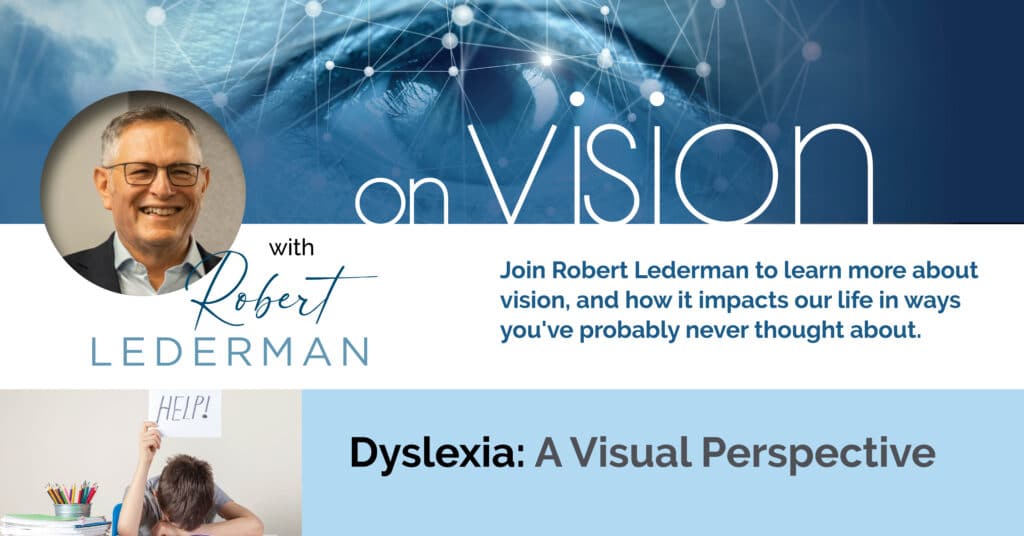
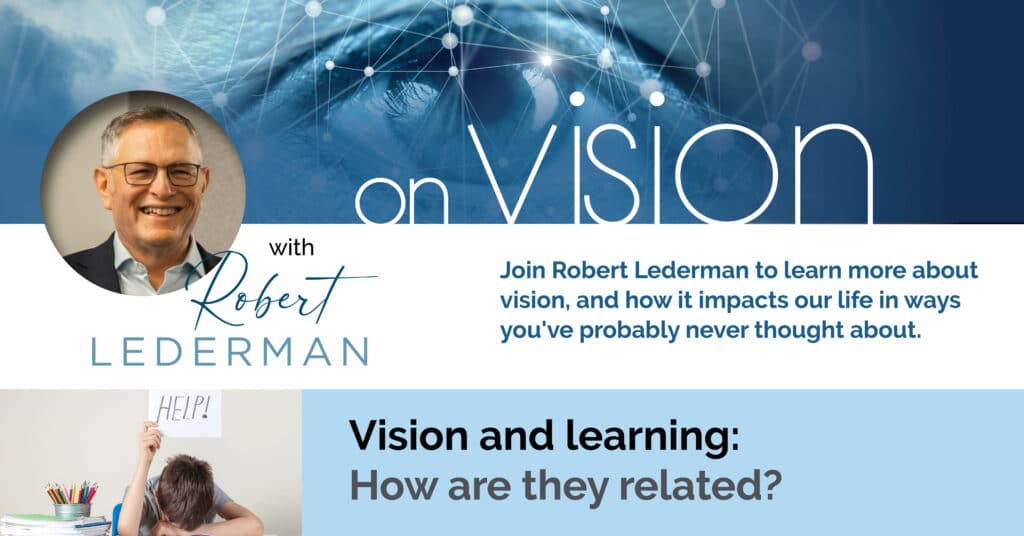
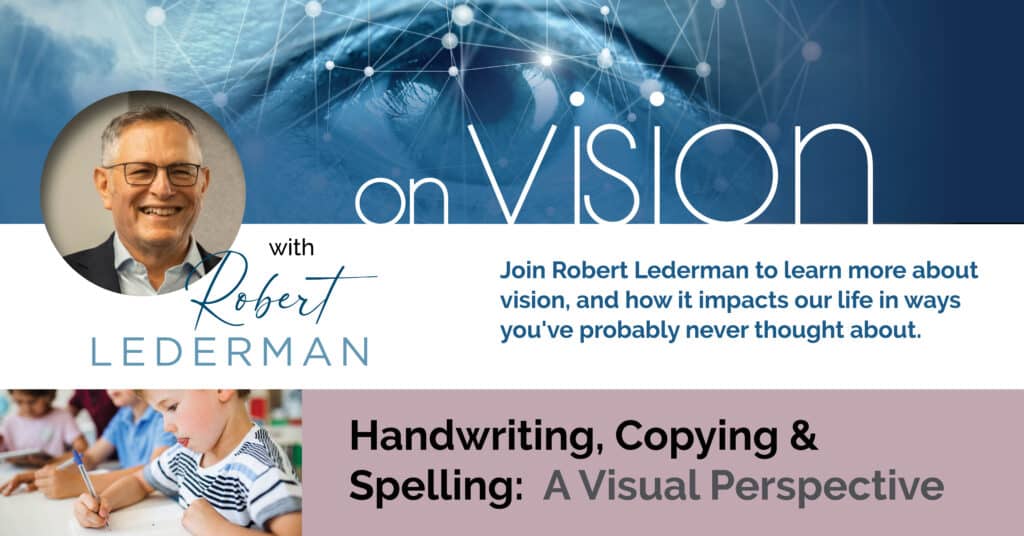
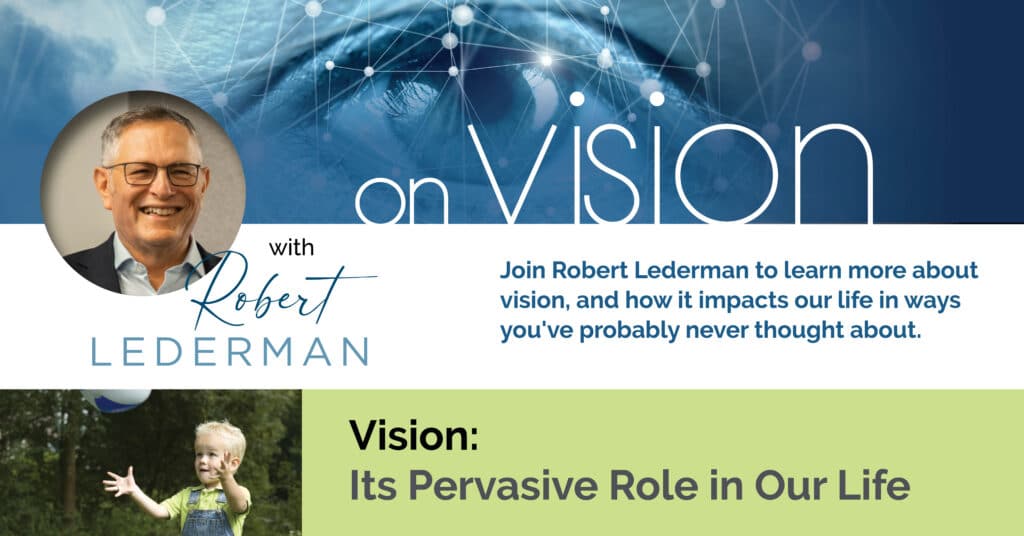
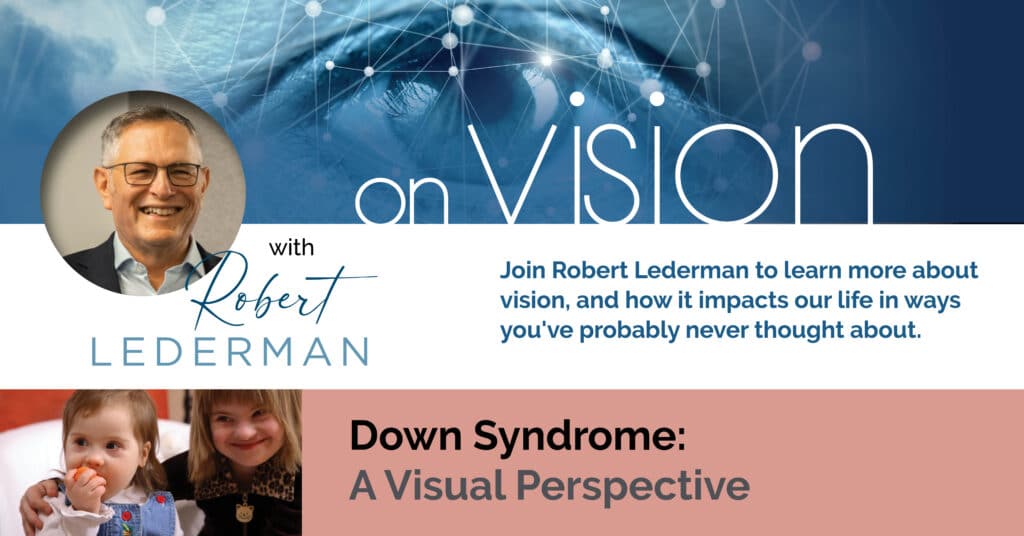
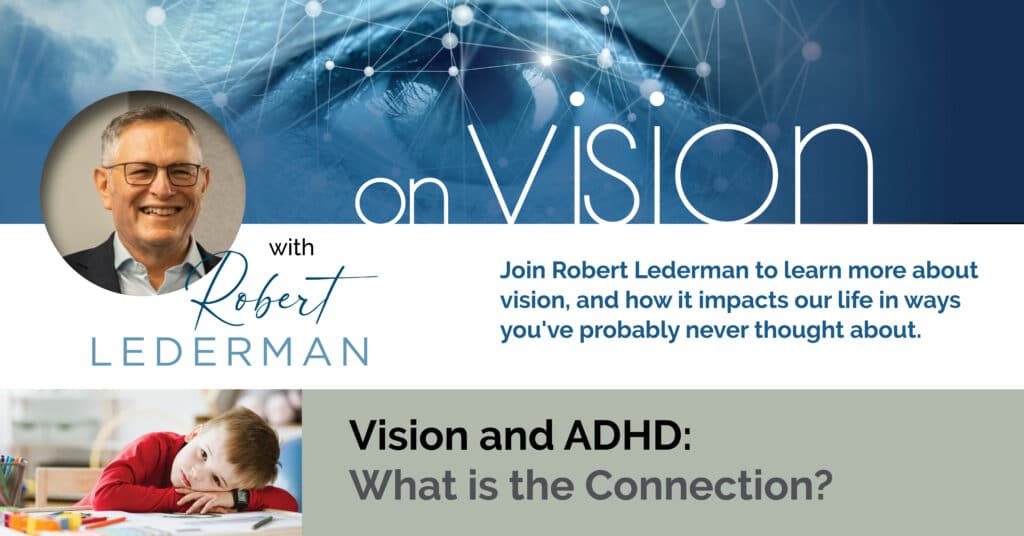
Learn From a Vision Expert
Invite Robert Lederman to Speak
Bring Robert Lederman to your next meeting, to explore the pivotal role of vision in learning. With 35+ years of experience in diagnosing and managing learning-related vision issues, Robert’s sought-after captivating lectures and expertise in recognizing and improving visual efficiency have the potential to transform lives.
Robert Lederman has 35 years’ experience in clinical diagnosis and management of learning, attention, and performance-related vision issues. He has seen over 17,500 patients in his clinic, LedermanVision (ledermanvision.com)
Robert Lederman has been sharing what he knows about vision for 35 years. He is a sought-after lecturer, fascinating and enthralling audiences time after time as he shares his knowledge, research findings and clinical observations regarding the pervasive role of vision in our life, and all that can be done to improve the way we do seeing. He is a visiting lecturer at The Edmond J. Safra Brain Research Center for the Study of Learning Disabilities, Haifa University and has delivered over 400 presentations around the world about many aspects of vision. And he is ready to enrich your professional group too!

References
1. DeCarlo DK, Swanson M, McGwin G, Visscher K, Owsley C. ADHD and vision problems in the national survey of children’s health. Optometry and vision science: official publication of the American Academy of Optometry. 2016 May;93(5):459.
2. Stein, J. (2018). What is developmental dyslexia?. Brain sciences, 8(2), 26.
3. Berlin R. “Über Dyslexie” [About dyslexia] Arch. Psychiatr. 1884;15:276–278. [Google Scholar]
4. Morgan W.P. Word Blindness. Br. Med. J. 1896;2:1378. doi: 10.1136/bmj.2.1871.1378. [PMC free article] [PubMed] [CrossRef] [Google Scholar]
5. Hinshelwood P.J. Congenital Word Blindness. Lewis; London, UK: 1917. [Google Scholar]
6. Orton S. Word blindness in school children. Arch. Neurol. Psychiatry. 1925;14:581. doi: 10.1001/archneurpsyc.1925.02200170002001. [CrossRef] [Google Scholar]
7. Chomsky N. Transformational Analysis. University of Pennsylvania; Philadelphia, PA, USA: 1955. [Google Scholar]
8. Liberman I.Y. In: A Language Oriented View of Reading and Its Disabilities. Progress in Learning Disabilities. Myklebust I.H.R., editor. Grune and Stratton; New York, NY, USA: 1983. [Google Scholar]

